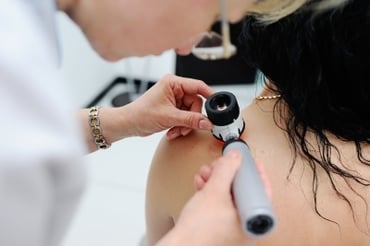
If you have ever considered finding out more about your genetics, there are a variety of different companies that have been providing at-home services for more than a decade! Genetic testing has become increasingly popular and not just for people. You can even have your dog tested to determine lineage and other information. However, human DNA testing is increasingly used to help identify potential risk factors for a variety of different conditions from the comfort of your own home.
With the recent shift to doing so many things from home, at-home genetic testing to understand your risk of developing a hereditary cancer seems like it would be ideal. But is it? Here we'll look more closely at home DNA tests that identify risk factors for cancer or any other genetic diseases.
DNA testing has become so widespread that it is simply commercially available. While it may sound as though an at-home test would be ideal, there are some pros and cons.
Are At-Home DNA Tests Helpful or Harmful?
Some of the pros of at-home DNA testing is the convenience, affordability and privacy of the tests. And, they’re easily accessible from several sources, even Amazon.
Although these tests may be able to provide you with valuable information regarding your risk of getting cancer or other diseases, the results can be misleading, hard to interpret, and at times very overwhelming. One of the considerable disadvantages of at-home DNA testing is that the test kits don’t come with a medical professional to help you sort out what the results mean.
Not Enough Information to Make a Full Assessment
Home genetic test results may show that you have a specific gene mutation. Unfortunately, in many of these products, this is a simple yes or no, but the reality is that there are many other factors that you need to consider so that you can understand your actual cancer risk. A trained genetic counselor like the one at Compass Oncology, assesses risk based on the results and other factors that may lead to particular types of cancer.
At-Home DNA Tests Are Limited in Scope
In the case of 23andMe, it only tests for three mutations found in the BRCA1 and BRCA2 genes, which are linked to breast cancer and ovarian cancer, leaving out the thousands of other mutations that increase the risk for those, as well as different types of cancer.
Don’t Set a False Sense of Security
The majority of cancers are not caused by genetic mutations with only 5-10% of all cancer diagnoses related to a genetic factor. You could get your test results back that show you have no known genetic mutations related to cancer. However, that does not mean you won’t get cancer. Stay on top of your cancer screening schedule even if you have no genetic mutations or other markers that are related to cancer.
Not All Genes (or Genetic Tests) are Created Equal
When it comes to determining your risks for developing cancer, it’s important to remember that not all gene mutations produce the same levels of cancer risk. Getting results from an at-home test can cause alarm when it may not be warranted. And in other cases, the at-home test may not be able to detect some of the mutations that a professional genetic testing panel would look for.
While an at-home test may conclude that you aren’t at risk for cancer, it may have missed specific gene mutations that should be evaluated before a determination is made. This may be because the at-home tests are designed for wide-scale use rather than individual testing where your specific background isn’t known.
For the best results, consider having your genetic testing completed by a medical professional like the genetic counselors at our offices in Portland, Oregon and Vancouver, Washington. Not everyone is a candidate for professional genetic testing. The counselors will review your personal history and your family history to help you determine if testing would be appropriate.
If you’re looking to have a broad understanding of your lineage, at-home tests are great for determining generalized information. However, if you have specific concerns about cancer or other diseases, reach out to a professional genetic counselor.
Remember that when you receive results, whether at-home or through a professional genetic test, talk to your family about their interest in knowing the results before sharing it with them. Some people prefer to know while others do not. If you are located in the Portland, OR, or Vancouver, WA area, find out if you would be a good candidate for genetic counseling at the Compass Oncology offices.

